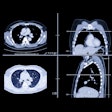Although the percentage of radiology cancellations of diagnostic imaging orders is relatively low, they are influenced by particular factors -- such as type of exam or patients' English language ability, investigators have reported.
These factors could be "targeted in efforts to improve diagnostic imaging workflow processes and efficiencies, while reducing potential errors," wrote a team led by Jerard Kneifati-Hayek, MD, of Columbia University Irving Medical Center in New York City. The group's findings were published September 17 in the American Journal of Roentgenology.
Radiology departments review imaging orders before the exam is performed. These reviews can be conducted by a radiologist, technologist, scheduler, or other staff member, and may end in cancellation of the exam, which can prompt a need for the ordering practitioner to place a new order. Canceled orders may result in "process inefficiencies," Kneifati-Hayek and colleagues explained, noting that "insights into factors associated with order cancellation by the radiology department could guide interventions to improve ordering practices and thereby aid radiology workflows."
The group sought to identify factors associated with radiology department imaging order cancellations via a study that included data from the electronic health records (EHRs) of a six-facility healthcare system (January 2021 to December 2023) for all orders placed for noninvasive diagnostic imaging exams in adult patients. The EHR search yielded 7.5 million imaging orders that were either completed or canceled by the radiology department. The researchers culled patient and order characteristics from the EMR; as part of the study, two radiologists also reviewed a random sample of 100 canceled orders and determined whether the originally requested exam was reordered or a new modified order submitted.
Overall, the team reported that 3.4% of imaging exam orders were canceled by the radiology department. It also found the following:
Odds ratios for radiology department-based imaging order cancelations | |
Type of exam or place of exam order | Odds ratio (with 1 as reference) |
| Breast imaging | 5.09 |
| Contrast-enhanced exams | 3.59 |
| Emergency department | 1.97 |
Race/ethnicity of patients | |
| Non-Hispanic Black (compared to non-Hispanic White) | 1.45 |
| Spanish-speaking (compared to English speakers) | 1.11 |
| Mandarin-speaking (compared to English speakers) | 1.11 |
Clinician type | |
| Trainees | 1.55 |
Kneifati-Hayek and colleagues also noted that of the 100 randomly-sampled canceled orders, 96 were modified and placed again; the most common modifications were number of x-ray views to be taken and use of IV contrast. The remaining four orders were reordered without any modifications.
"In the subset of 100 canceled orders, most cancellations resulted in a subsequent changed order, indicating the potential for inappropriate imaging or even misdiagnosis resulting from problematic orders left uncorrected," they wrote.
The factors identified for imaging orders canceled by the radiology department "highlight potential sources predisposing to error and opportunities to improve ordering practices," and should be addressed, perhaps through clinical decision support tools, according to the authors.
"Strategies could be designed to improve ordering in the emergency department, ordering of IV contrast media, and ordering by trainees," they concluded. "Additionally, the association of cancellation with preferred language spoken indicates the importance of optimal patient-referrer communication during the ordering process."
The complete study can be found here.



















